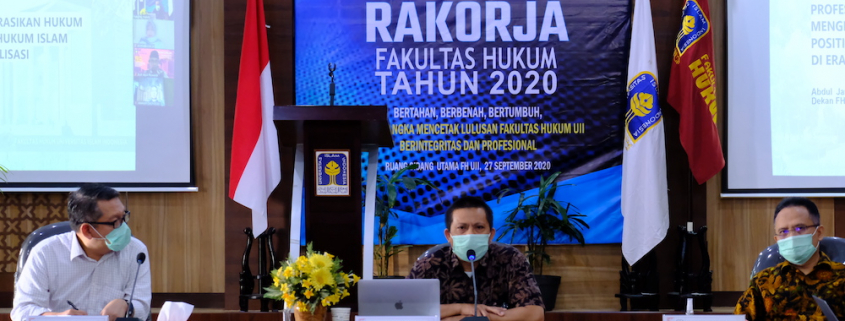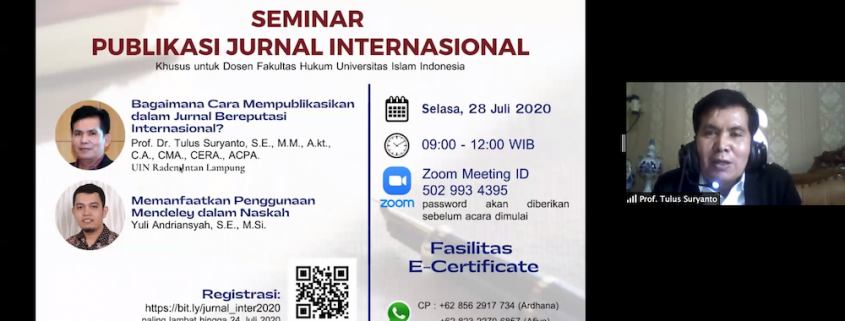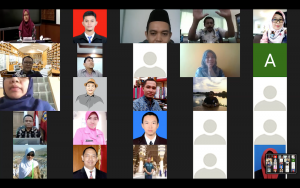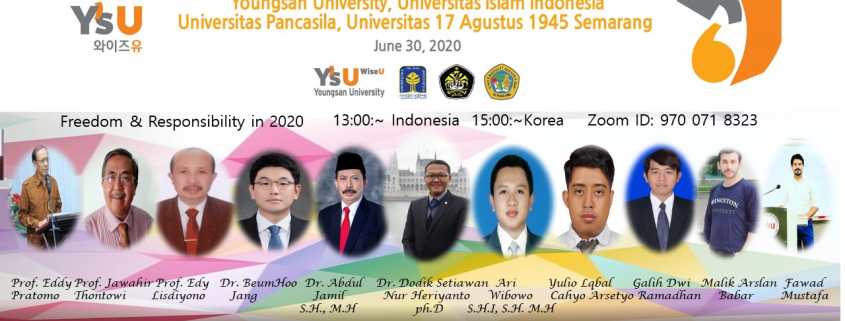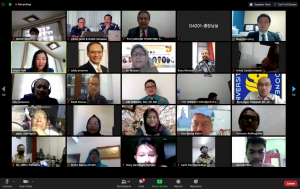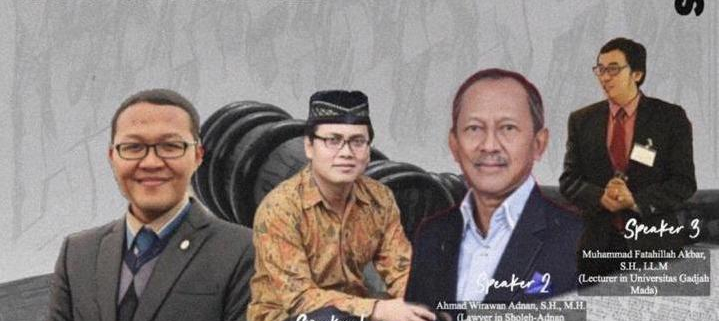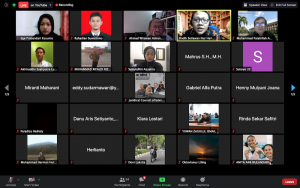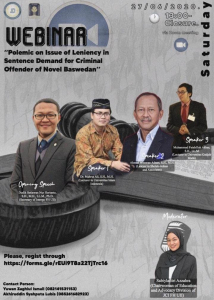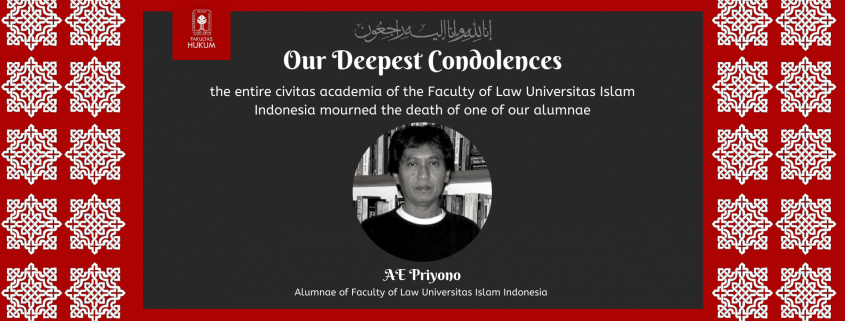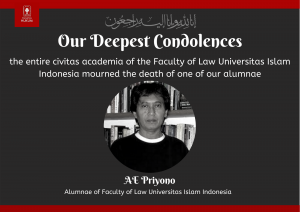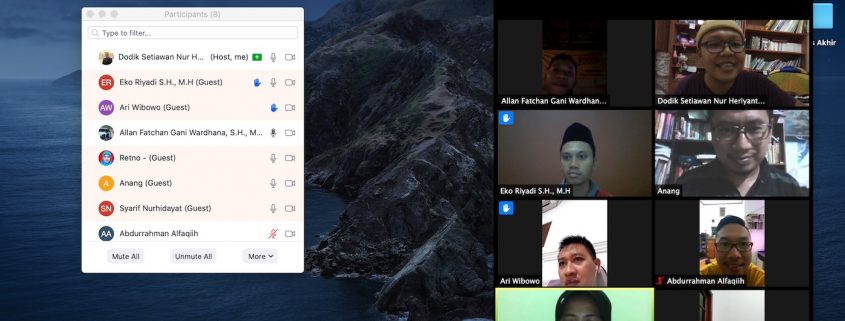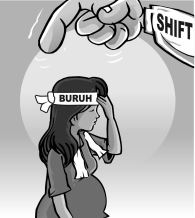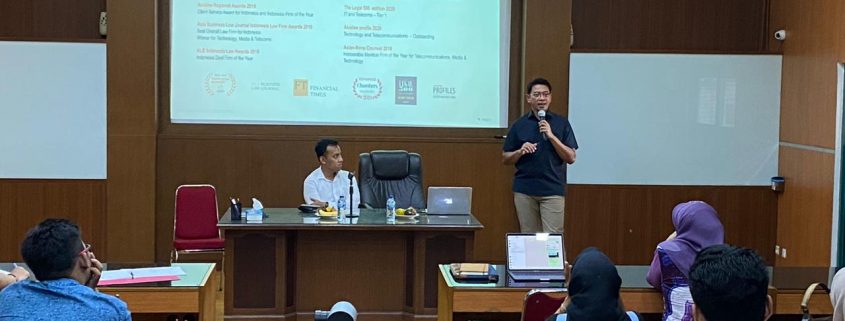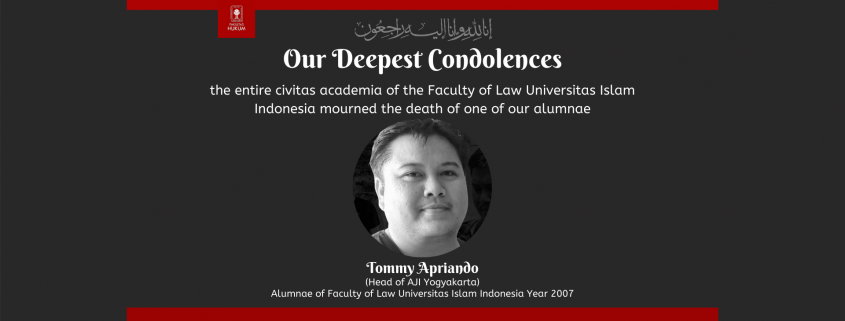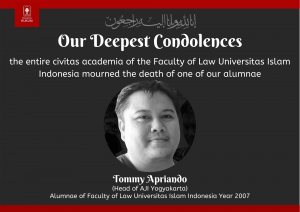The Faculty of Law of the Universitas Islam Indonesia (UII) held a 2020 Coordination Meeting to Concepting Working Plan (Rakorja) on Sunday (27-09-2020). The UII FH Coordination Meeting 2020 this time carries the theme theme “Bertahan; Berbenah; Tumbuh; dalam Rangka Mencetak Lulusan FH Berintegritas dan Profesional (Defending; Clean up; Grow; in Order to Produce Faculty of Law’s Graduate with Integrity and Professional)”. Implementation of this Rakorja is different from previous years because it is carried out online. This is a reminder of the high number of cases of Covid-19 transmission in Indonesia. The implementation of this Rakorja was carried out in a hybrid manner from the Main Meeting Room, 3rd Floor of FH UII and was attended by around 25 people. Although many participants realized, the implementation of the Faculty of Law’s Rakorja 2020 was carried out in accordance with health protocols.
In his speech, the Dean of Faculty of Law UII, Assoc Professor Dr. Abdul Jamil, SH., MH., said that the implementation of this Rakorja had complied with the existing health protocols. Abdul Jamil, who is also the Chairperson of the UII Siaga Covid 19 Team, said that all coordination meetings paid attention to existing health protocols. “We have opened the windows, we have also opened the doors so that the air can circulate properly”, said Abdul Jamil.
The Rakorja was opened by the Rector of UII, Prof. Fathul Wahid, ST, M, Sc., Ph.D ,. In his remarks, Fathul Wahid praised the willingness of Faculty of Law UII lecturers to organize activities amidst the existing busy schedule. “This is proof that you are good people, because they volunteered for the meeting on Sunday,” said Fathul Wahid, responded with laughter from the participants.
According to Fathul Wahid, the pandemic condition is the main challenge for universities in Indonesia, including UII. “This pandemic condition has a tremendous impact. This condition will greatly affect our future policy direction”, he said. According to Fathul Wahid, many private universities could barely survive this pandemic. “Alhamdulillah, UII after doing the ‘belt tightening” managed to survive until it has a salary cash reserve of up to 12 months, “added Fathul Wahid optimistically.
Fathul Wahid conveyed that this pandemic condition should not be considered merely as an obstacle, but must also be seen as a momentum. This is the meaning of the UII’s Rakorja theme. “We have to quickly adapt,” said Fathul Wahid. The online learning system is one form of momentum referred to by Fathul Wahid. According to him, during the pandemic, UII has been ‘forced’ to develop a good online learning system. It is projected that this system will not continue to end after the pandemic is over, but will continue to be developed. The main objective is to increase the usefulness of UII’s existence in Indonesia. “I imagine if we can make online meetings permanent. It can also be used as a mixture of online and offline. ”, Said Fathul Wahid.
The Faculty of Law UII itself has an optimistic view in welcoming this Rakorja. According to Abdul Jamil, Faculty of Law of the UII will aim to have at least five professors in the next 2021 period. This was as conveyed by Abdul Jamil in his presentation of the 2021 FH UII Dean Work Program. “The 2021 target will be 5 professors,” said Abdul Jamil.
The implementation of the Faculty of Law’s Rakorja was carried out with strict health protocols. The organizing committee provides medical masks for all participants. “The Faculty of Law UII gives full concentration on how to maintain the health of the Faculty of Law UII civitas academica during the pandemic period,” said Abdul Jamil.

